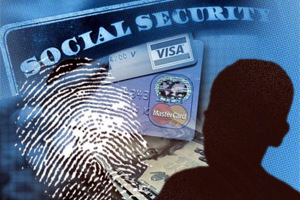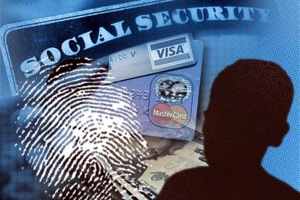Everyone is concerned about identity theft, and with good reason. Each day, thousands of people are hacked into via their computers, bank or credit cards, or social security numbers due to some careless act or access to sensitive information that is left unguarded.

1) Join Life lock or a similar Identity Theft or Identity Shield service and let people know you are a member. This has a similar effect to putting an ADT sign on your lawn when you install your home security system.
Even in cases when the person has NOT had such security, some thefts have been avoided when the potential thief thought the security measures were installed. But, of course the best scenario is to have it AND let people know you have it.
2) Join Legal Shield or a well-known legal service to protect your valuable information. The benefit to these is that it will automatically alert you in the event of any attempted fraud or hacking activity.
With a first alert type system which lets you know at the first sign of trouble, you can have damage control and keep abreast of the issues, before they get out of hand and your identity is sacrificed or stolen.
3) Change passwords often with email accounts and social media. Social media and email accounts are most hacked into when they are left dormant, but the second reason is due to compromised passwords. Change passwords when you can, especially if you notice any suspicious activity on your accounts.
4) Don’t put personal information up for grabs. This includes outlets like social media, emails, forwards, blogs, or websites. If you have a business, put your business information up but don’t put up home addresses, home phones, banking information, or other sensitive data for anyone to see. Remember the internet is open to anyone with internet access. Anyone. Prisoners and felons have access too.
5) Remind children about internet safety. Just as you guard yourself, guard your children even closer. Instruct them to never give out their personal information, such as where they live, phone numbers, parents’ names, and so on. Even if they think it is a friend, this rule should still be followed. They should also report to you any strange behaviors, or attempts to contact them if they do not know them in the real world. This includes emails, texting, social media, and more.
6) Watch spyware and adware applications and uninstall when possible. Adware and spyware are designed to do just what their name implies: sell you something or watch what you do. They pay close attention to the programs you use, your activity and browsing behavior on the internet, and your shopping habits. Go to the control panel and uninstall programs you didn’t know were there. It will make your computer run smoother and avoid a lot of headaches and potential data loss in the long run.
7) Backup data. Many programs offer backup solutions but I prefer the DIY method. Simply back up your best and most important files, especially important financial situation, program installations, and more by copying them to an external hard drive or other device. A little time taken now to back up important files will save you from having to deal with it in the future, in the vent of a virus or malware attack.
8) Apply the same rules you do in the “real world.” I have often thought that the internet is not a lot different from the real world in some ways. Sure, there are more ways to steal and their identity is more hidden. But just as someone can walk into your house if you leave the back door open, the same is true online. Don’t leave your computer “open” to attacks from invaders, crooks, and thieves. Think of all the ways they could access your important and critical data and lock it down. ”
9) LImit “forwards.” Forwarding messages to friends is fun but it can lead to spreading a virus like wildfire. If even one person on your contact list has a computer virus or malware and they don’t know it, they can spread it to everyone else. Limit forwards to only once in awhile and to people you know have virus protection, to reduce the risk.
If you follow these tips, you will be on the way to a higher level of security. This does not mean you will never have a password stolen or a credit card compromised. But if you are wary of the dangers, you will be more likely to avoid the pitfalls and secure your online presence, preventing identity theft from happening to you.
Aaron Mills is a blogger who writes on behalf of companies such as Protectyourbubble.com ID theft provider.
Identity Theft Deterrents

